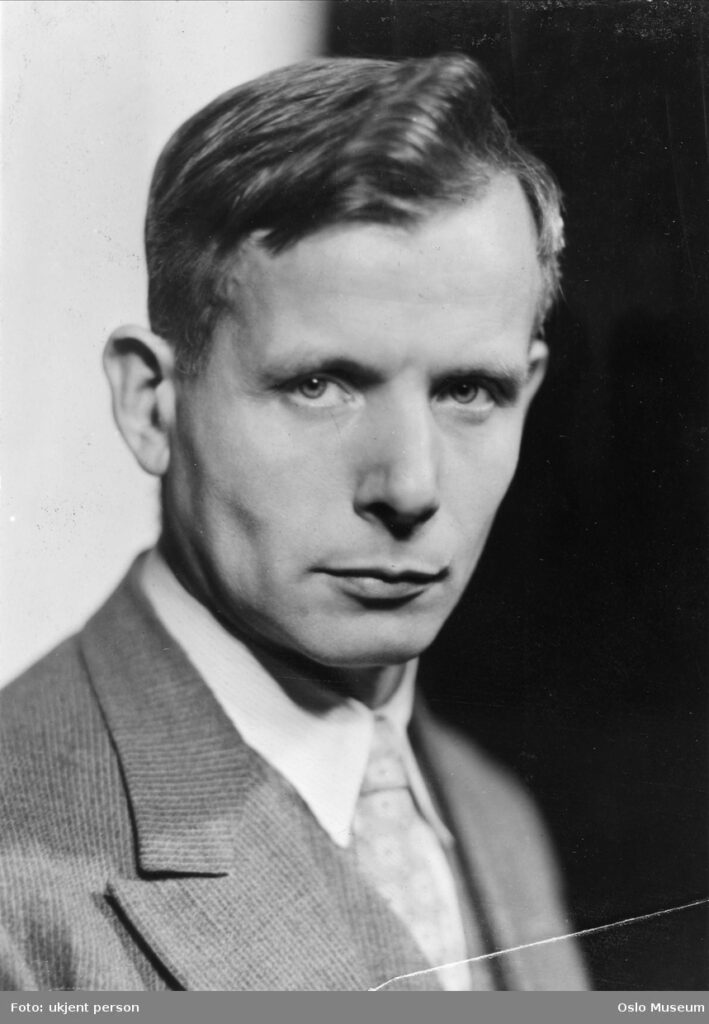His graduation in Oslo at the age of 25 is documented in 1928, holding the first Magister-degree in musicology in Norway ever. He studied musicology in Heidelberg (probably 1919-20), graduated in Oslo (1925) and continued to study in Berlin (1932-35). He wrote his dissertation about Arnold Schoenberg and Fartein Valen (1938), worked as a conductor, journalist and editor at Norsk Musikkforlag, where he published the journal „Norsk Musikkliv“ (since 1942). Together with his companion Øyvind Anker he published the collected works of Rikard Nordraak on the occasion of his centennial (1942) as well as the encyclopedia „Musikk Leksikon“ (1949).
Gurvin’s particular role for the civil resistance movement is still unclear, but it can be assumed that he was one of the main networkers in Oslo concerning music. Directly after the war Gurvin published several newspaper articles demanding severe punishment for musicians who had collaborated with the regime. His behavior as chairman of a committee to evaluate moral and political guilt of musicians nevertheless caused controversial reactions.
From 1939, until the German authorities sanctioned Oslo’s University in 1942, Gurvin was in charge of all musicological lectures and continued to teach graduate students on a private basis until 1945. On 1 July 1946 Gurvin was granted a permanent position to become the first lecturer for musicology. Nevertheless, all plans to establish his discipline as a minor subject were blocked by the faculty until 1949. With only the support of his assistant Liv Greni and cantor Arild Sandvold teaching harmony and counterpoint he had to cover the full methodological spectrum. He still found time though to found the Norwegian Institute for Folk Music (“norsk folkemusikkinstitutt”) in 1951, a much frequented institution under the auspices of the Research Council for General Studies (“almenvitenskapelige forskningsråd”). Despite a lack of rooms, instruments, records and scores he cultivated musicology. In 1958 he was able to open his own department after he had been appointed the first professor in his discipline in Norway two years earlier. Until his retirement in 1964 he continued to study Norwegian art music, especially Johann Svendsen (the topic of his magister thesis), Fartein Valen (the subject of his dissertation) and folk music.

